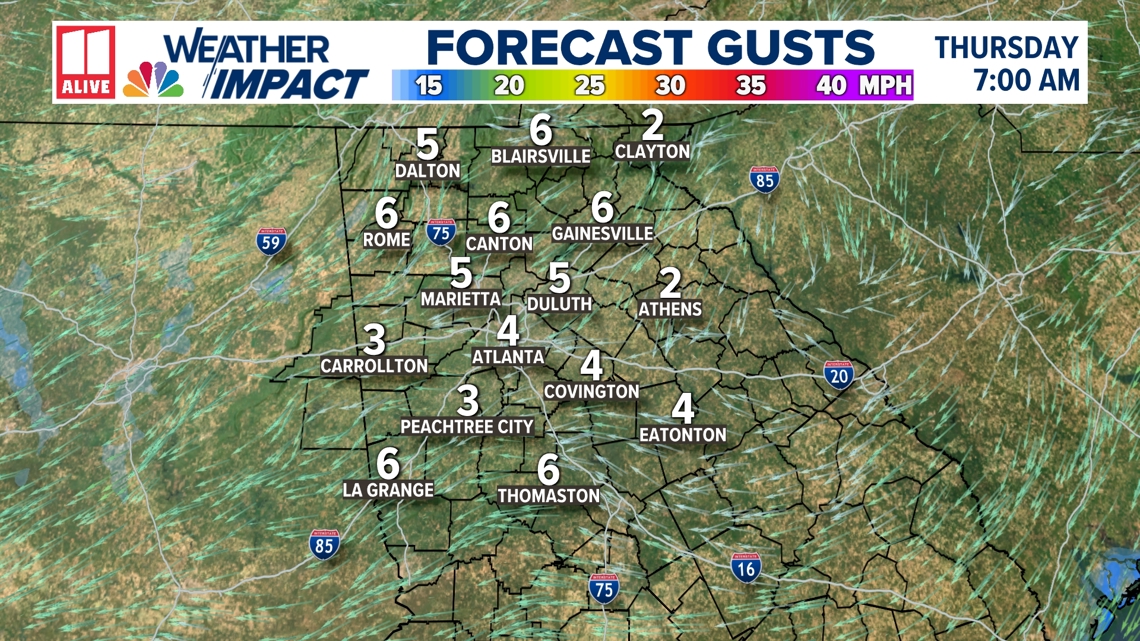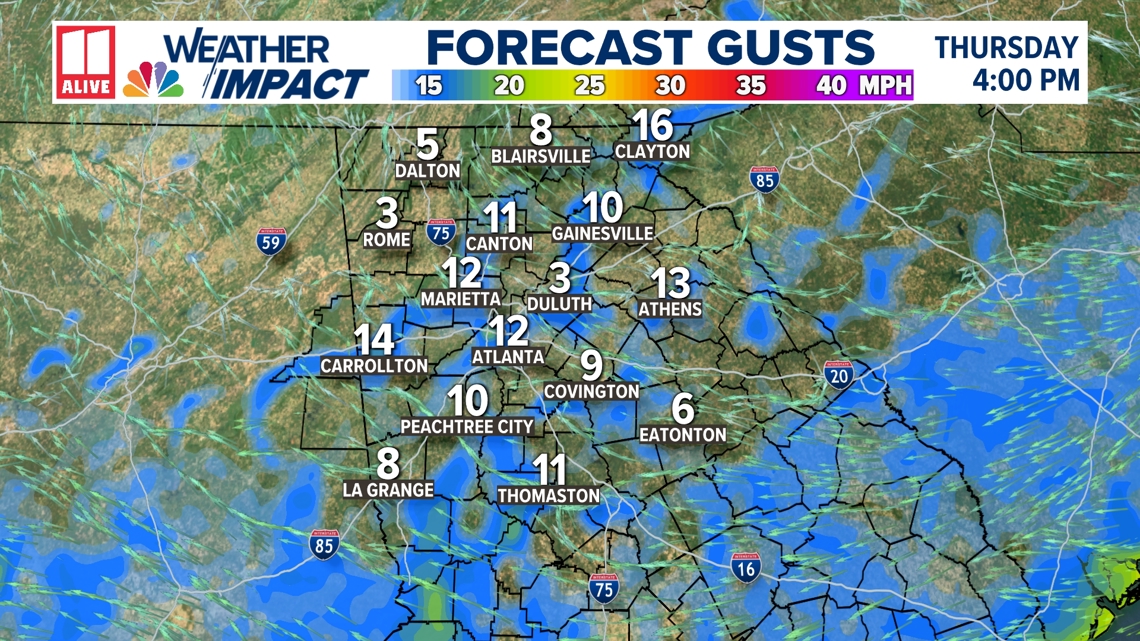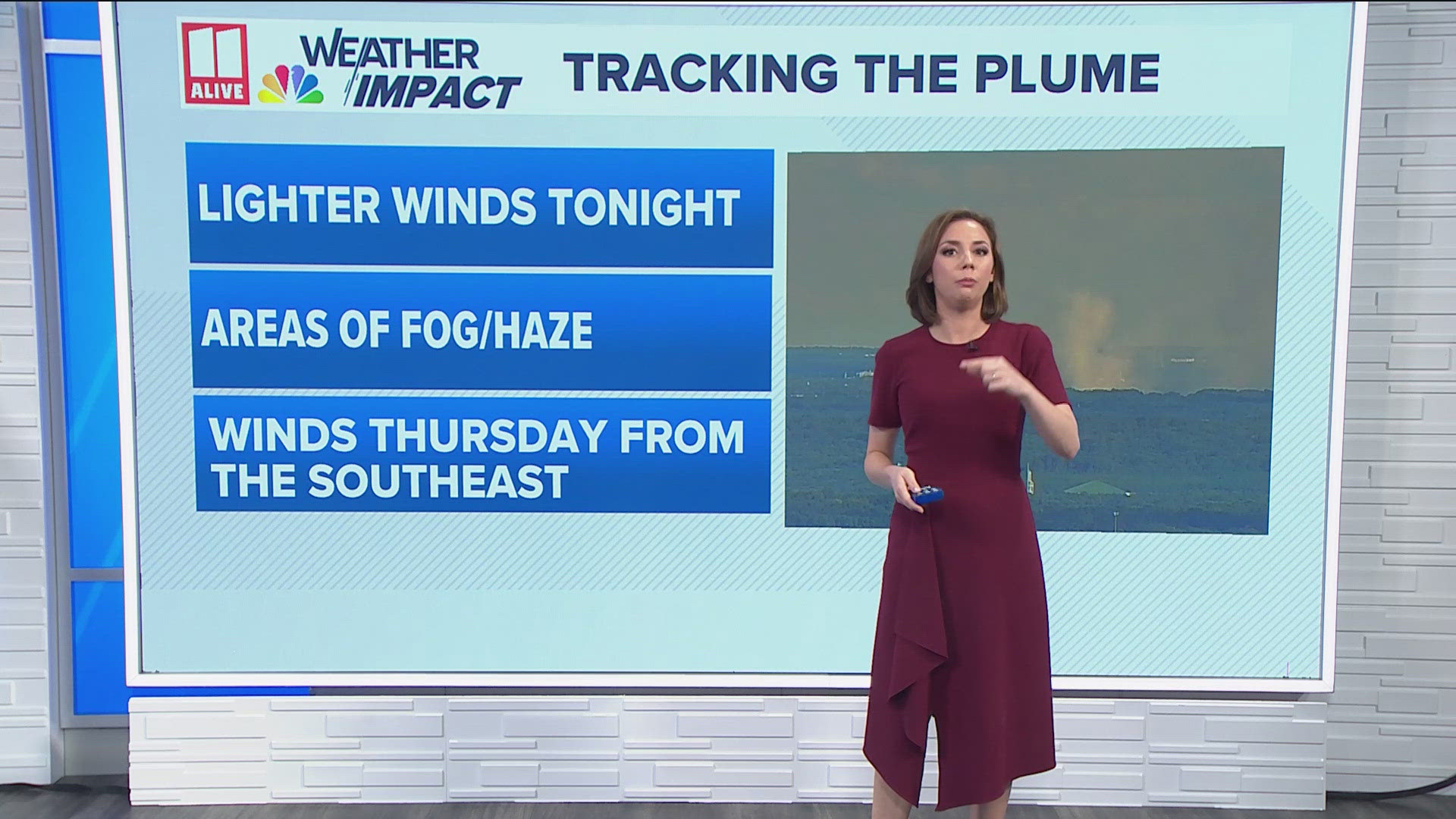CONYERS, Ga. — Thursday will mark five days since a chemical fire broke out at the BioLab facility in Rockdale County. Although the fire is out, there is still a large amount of chemicals that remain to be removed from the property.
In the meantime, chlorine compounds continue to "gas off," which refers to the vapor product of ongoing chemical reactions as it comes in contact with moisture on the ground. This is still sending a plume into the air over Conyers and surrounding communities.
During the day, this plume can travel higher in the atmosphere and further -- so the concentrations of chlorine in any one given area lowers.
RELATED: Conyers chemical plume | Here's what an environmental expert says Georgia residents should do next
But at night, the winds turn lighter, and the plume remains right over the ground, contributing to degraded air quality and the development of fog and haze in surrounding communities.
Winds overnight and into Thursday morning will change directions again, possibly sending the plume in a new direction.
Winds overnight will be very light, so the plume will be close to the ground. They will turn to southeasterly, meaning coming from the southeast and blowing towards the northwest.


After sunrise, the winds will gradually start to increase as temperatures warm. Afternoon winds will be southeasterly at 7 to 10 mph.


Even though the plume may settle near parts of Atlanta, GEMA officials released a statement Wednesday telling residents that levels of chlorine would still be within safe thresholds.
"Tonight the smoke will drift towards metro Atlanta and settle close to the ground, which is common at night time. With light winds, smog or haze could settle over the city in the morning, which could smell like chlorine. This does not mean that people in Metro Atlanta are unsafe. Chlorine has a very low odor threshold, meaning you can smell it well before it reaches a harmful level."
Friday, winds will be easterly, blowing any remaining plume due west from Conyers. The plume will remain a factor until all of the remaining chemicals are removed from the BioLab site.
On Wednesday, we spoke to Georgia Tech associate professor of Chemistry, Dr. Joseph Sadighi, about the thresholds to be concerned about.
"One of the good things is that we can smell it at much lower concentrations than those that'll hurt us. So, ten parts per million is considered immediately dangerous. Two hundred parts per million would be fatal for the average person over half an hour. We can smell it around one part per million. Some of us, even at lower concentrations," Sadighi said.
According to GEMA, smoke that contains chlorine compounds can cause a variety of symptoms, including irritated eyes and airways, coughing, shortness of breath, difficulty breathing, chest tightness, a scratchy throat, irritated sinuses, headaches, stinging eyes or a runny nose.
Those with heart disease may experience chest pain, palpitations, shortness of breath or fatigue. Meanwhile, people with lung disease may not be able to breathe as deeply or as vigorously as usual. In addition, they may experience symptoms like coughing, phlegm, chest discomfort, wheezing and shortness of breath.
GEMA recommends limiting exposure to the smoke and taking precautions to protect your health. You can do this by limiting your activities outdoors and staying inside -- away from the smoke. You also want to keep indoor air as clean as possible. Keep windows and doors closed. Run your air conditioner only if you can close the fresh air intake and use re-circulated air.
The elderly, children and people with compromised immune symptoms should stay indoors or limit outdoor activities to prevent exposure to smoke. And finally, if you have asthma or another lung disease, follow the advice of your doctor or other health care providers about your management plan and medicines.

